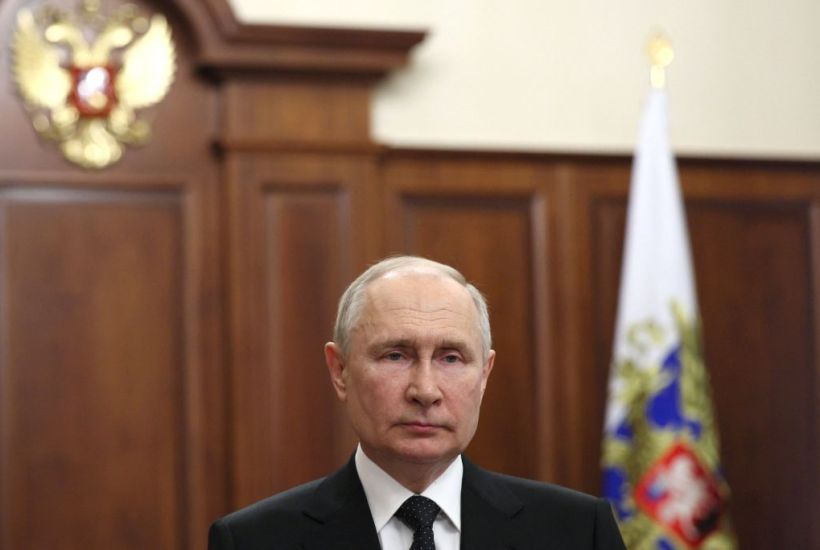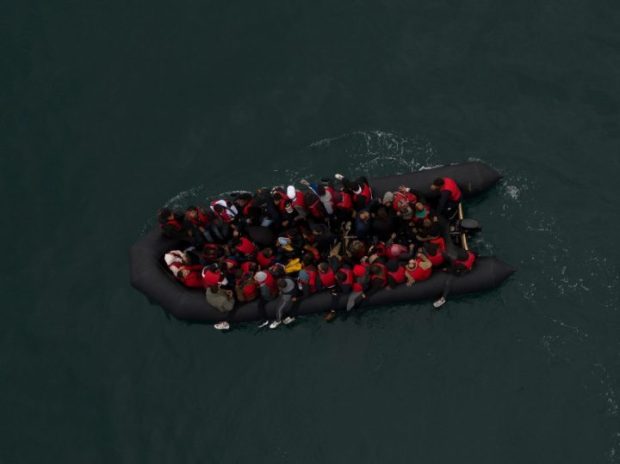Yevgeny Prigozhin has just exposed the full extent of Vladimir Putin’s weakness. In less than 24 hours, the leader of the Wagner mercenary group made extraordinary progress – taking control of the southern Russian city of Rostov-on-Don, the headquarters of the Southern Miliary District, and posing the most serious challenge to Putin’s leadership. The president did not look all-powerful, but unable to control Prigozhin as he said his 25,000 troops were willing to march on Moscow.
Back on 9 May, when Prigozhin’s challenge to Vladimir Putin first became evident, I argued in The Spectator against the idea that Putin was ‘in charge’ of the situation. My analysis was based on the sense – confirmed since then – that Prigozhin’s complaints about Wagner ammunition and attacks on a certain ‘happy grandpa’ running the war effort seriously undermined Putin’s authority.
Such arguments are not meant to happen in Putin’s system. Minions are allowed to attack each other, but never undermine the vertical structure. Prigozhin crossed that line. And Putin had to respond. But Putin’s distant response to that challenge in May – he continued to act as if nothing was happening, and only recently seemed to throw his lot with the Ministry of Defence endorsing the idea that Wagner should be subordinated to it – sent a signal right down the system.
Meanwhile, Prigozhin clearly understood that his time was running out for Wagner and that it was the time to move. Three factors possibly played a role. One is certain. Two are speculative (on my part). The first factor is the Ukrainian counteroffensive, which tied up the Russian military.
The second (and here I speculate), is that Prigozhin probably sensed that Putin was coming round to the idea of endorsing his rival, defence minister Sergei Shoigu (Putin was previously ambivalent, floating above the whole conflict). Shoigu’s deadline – 1 July – for Wagner subordinating to the Russian military is just around the corner.
The third factor (and this would explain the panicked reaction in Moscow), is that Prigozhin had people on the inside who are backing him, supporting his bid for power. The Ministry of Defence put out statements by Prigozhin’s оstensible former ally General Sergei Surovikin (Prigozhin had previously called for Surovikin to be put in charge of the Ministry of Defense), and by deputy head of the GRU (now known as GU) Vladimir Alekseev. Both condemned Prigozhin’s bid for power. Yet hours later Alekseev was filmed in Rostov receiving a dressing down from Prigozhin.
Was the FSB backing Prigozhin? Obviously not, since they wanted Prigozhin arrested. Viktor Zolotov, Director of the National Guard of Russia? Who else? As so often with Kremlinology, we can see that dogs are fighting under the carpet but we won’t know who will prevail until one emerges on top. What we can see is that Putin came down fast and hard this time. He made a video statement, accusing Prigozhin of stabbing Russia in the back. He promised to inflict ‘unavoidable punishment’ on his former client.
Russia is in a state of a deep crisis, unlike anything it has experienced since 1991
The drama has exposed that Russia is in a state of a deep crisis, unlike anything it has experienced since 1991. Then, an attempted military/KGB coup against Mikhail Gorbachev lasted only three days. The coup plotters lacked the will and the determination to take power into their hands. The failure of the 1991 led, in short order, to the collapse of the Soviet Union.
In August 1917, the commander-in-chief of the Russian Army Lavr Kornilov attempted a march on St. Petersburg (then Russia’s capital city), ostensibly to rein in the Bosheviks and reimpose government control. His attempted military coup fizzled out, but in helped contribute to chaos that brought the Bolsheviks to power that November. There followed a brutal civil war that cost Russia millions of lives. Putin mentioned the 1917 precedent in his address to the Russian people. Clearly, he, too, is aware of the dangerous parallels.
Russia has a rich history of failed coups. They rarely bring closure. Prigozhin, with his projected March on Moscow, was drawing on the same unhappy tradition. The results cannot be foretold. But Russian history has ways of reasserting itself.
Got something to add? Join the discussion and comment below.
Get 10 issues for just $10
Subscribe to The Spectator Australia today for the next 10 magazine issues, plus full online access, for just $10.




















Comments
Don't miss out
Join the conversation with other Spectator Australia readers. Subscribe to leave a comment.
SUBSCRIBEAlready a subscriber? Log in